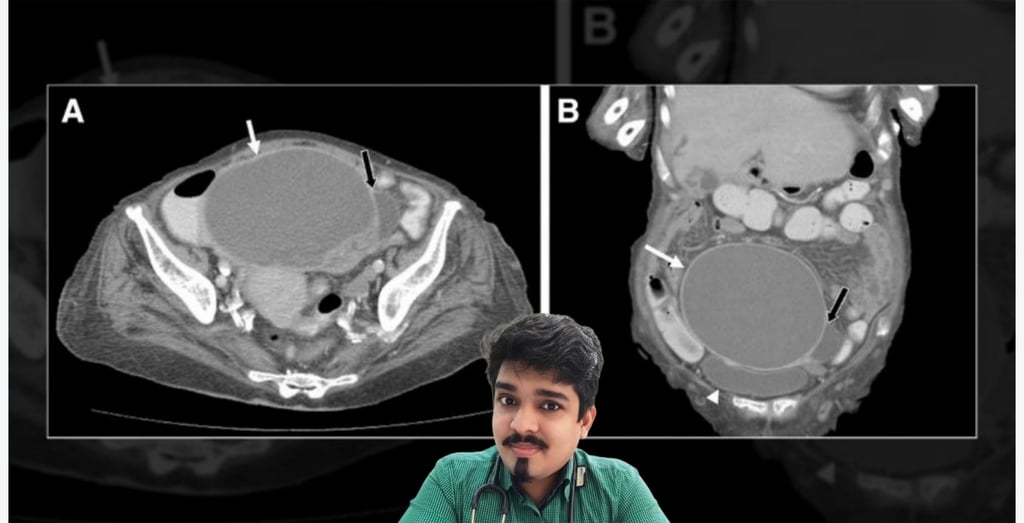Dr V. W. Verlekar
Treatment options For E Coli Infection In Elderly Woman
CRITICAL CARE
Dr V. W. Verlekar
3/2/20242 min read


E.Coli (Escherichia coli) infections can be particularly concerning in elderly individuals due to their weakened immune systems and increased susceptibility to complications. When an elderly woman is diagnosed with an E.Coli infection, it is essential to promptly initiate appropriate treatment to minimize the risk of complications and promote a speedy recovery.
Understanding E.Coli Infections
E.Coli is a type of bacteria commonly found in the intestines of both humans and animals. While most strains of E.Coli are harmless, certain strains can cause infections, leading to symptoms such as diarrhea, abdominal pain, and in severe cases, kidney problems.
When an elderly woman is infected with E.Coli, it is crucial to determine the strain responsible for the infection to guide treatment decisions. This is typically done through laboratory testing of Culture Media.
Treatment Approaches
The treatment of E.Coli infections in elderly women usually involves a combination of supportive care, antibiotic therapy, and prevention of complications.
1. Supportive Care
Supportive care plays a vital role in managing E.Coli infections in elderly women. It primarily focuses on maintaining hydration and electrolyte balance, as diarrhea can lead to fluid and electrolyte imbalances.
Encouraging the elderly woman to drink plenty of fluids, such as water, clear broths, and electrolyte-rich solutions, can help prevent dehydration. Additionally, consuming easily digestible foods like bananas, rice, soup, and toast (BRAT diet) may help alleviate gastrointestinal symptoms.
It is important to closely monitor the elderly woman's symptoms and seek medical attention if there are signs of worsening dehydration or persistent symptoms.
2. Antibiotic Therapy
In some cases, antibiotic therapy may be necessary to treat E.Coli infections, especially if the infection is severe or has spread beyond the gastrointestinal tract. However, the decision to use antibiotics should be made by a healthcare professional based on the specific circumstances of the infection.
It is important to note that not all E.Coli infections require antibiotic treatment. In fact, indiscriminate use of antibiotics can contribute to the development of antibiotic-resistant strains of bacteria. Therefore, antibiotic therapy should be reserved for cases where it is deemed necessary by a healthcare professional.
If antibiotics are prescribed, it is crucial to follow the prescribed dosage and duration to ensure effective treatment and minimize the risk of antibiotic resistance.
3. Prevention of Complications
E.Coli infections can sometimes lead to complications, especially in elderly individuals. One of the most concerning complications is the development of Hemolytic Uremic Syndrome (HUS), which can cause kidney damage.
To prevent complications, it is important to closely monitor the elderly woman's symptoms and seek medical attention if there are any signs of worsening or persistent symptoms. Prompt medical intervention can help prevent the progression of the infection and reduce the risk of complications.
Additionally, practicing good hygiene, such as proper handwashing, can help prevent the spread of E.Coli infections to others and reduce the risk of re-infection.
Conclusion
When an elderly woman is diagnosed with an E.Coli infection, prompt and appropriate treatment is crucial to minimize the risk of complications and promote a speedy recovery. Supportive care, including maintaining hydration and electrolyte balance, is essential. Antibiotic therapy should only be used when deemed necessary by a healthcare professional, and prevention of complications through close monitoring and good hygiene practices is of utmost importance.
By following these treatment approaches, healthcare professionals can effectively manage E.Coli infections in elderly women and improve their overall health outcomes.

